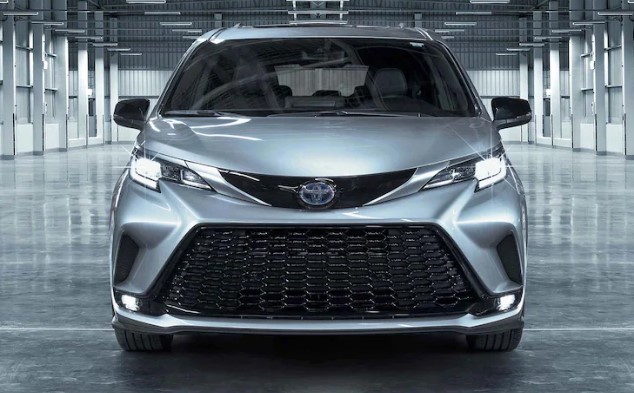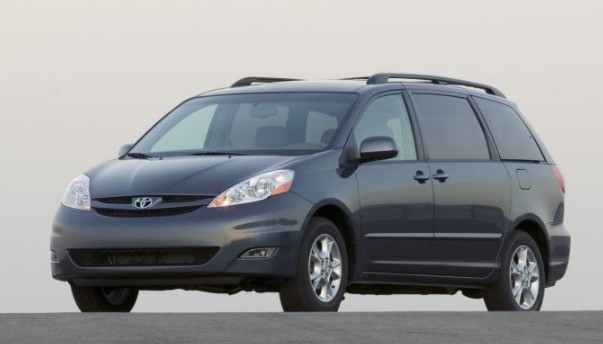The Toyota Sienna was first introduced in 1998, succeeding the Toyota Previa, which had been phased out of production the year before. Named after the Italian city of Siena, this minivan has since seen numerous upgrades and improvements over its two decades on the market. Its roominess and luxury can comfortably accommodate up to 8 passengers, making it an ideal vehicle for larger families.
To ensure that buyers get a dependable minivan, there are specific years they should avoid based on customer complaints made against them. Particular years have proven themselves through their performance as among some of the best models available today. To learn more about these models, one should research all general information regarding Toyota Sienna throughout its lifespan.
Toyota Sienna Model Years To Avoid (List Of Years)

It is highly recommended to avoid buying the 2004, 2005, 2007, 2008 and 2011 models of Toyota Sienna if you want a long-lasting vehicle. All these vehicles have been known for multiple manufacturing flaws which have led to a series of complaints from their owners.
The most common issues that have been identified in these years include body/paint problems, malfunctioning brakes, steering related issues with the exterior accessories as well as engine problems. Examples of some serious defects consist of damaged welds in the door or automatic sliding doors cable slipping and snapping suddenly without warning; all these are generally found after 70k miles on the odometer.
To ensure a hassle-free ownership experience it is suggested that you stay away from purchasing one of these Toyota Siennas. To help make this process easier here’s a list including all affected model years:
- 2004 Toyota Sienna
- 2005 Toyota Sienna
- 2007 Toyota Sienna
- 2008 Toyota Sienna
- 2011 Toyota Sienna

What Makes These Toyota Sienna Years Is Worth Avoiding?

Toyota vehicles have long been considered reliable and dependable, but the Toyota Sienna has been plagued with persistent issues since its inception. Despite numerous complaints from customers and critics, the company has struggled to fix these recurring problems in their vehicle. The most common faults include electric sliding doors that won’t work, oxygen sensors that aren’t properly functioning, oil leaks and loss of oil pressure as well as a cracked dashboard.
These problems are not only inconvenient for drivers but can be quite costly depending on the severity of the issue. To prevent further damage, it is important to stay up-to-date on servicing your Toyota Sienna and taking note if any of these known issues arise again. Below are steps you can take should this happen:
- Replace or repair all faulty electrical components associated with electric sliding doors
- Have your oxygen sensor checked by a professional technician immediately
- Get an inspection done to determine why there is an oil leak or pressure drop
- Use special adhesive products designed specifically for automotive use to seal up minor cracks in your dashboard.

1. Problem With Electric Sliding Doors:
Many individuals have reported difficulty with their electronic sliding doors. Partial failure of the door buttons has been reported, meaning they can be manually opened but not controlled electronically. Other drivers may experience complete failure.
The primary cause of such malfunctions is due to a worn or damaged cable system which compromises the latch motor located beneath the door’s mechanism. It is common for one side to fail before the other and after extensive repairs, the problem may persist. Technicians often need to tinker with electrical connections in order to obtain satisfactory results; however, this does come with its own set of risks if not done correctly.
2. Oxygen Sensor That Isn’t Working:
The Toyota Sienna is notorious for its oxygen sensor issues. The oxygen sensor monitors the ratio of exhaust gas to air in order to maintain optimal performance. Problems with this component span 16 model years, as evidenced by customer complaints. A faulty oxygen sensor can have a range of effects on your engine’s operation and can cause significant damage if left unchecked.
The driver must ensure their vehicle’s oxygen sensor remains functional so it can communicate when the catalytic converter should be inspected or replaced. Without an operational oxygen sensor, this determination cannot be made accurately and may lead to further problems down the line. For these reasons, it is critical that any malfunctioning sensors are identified quickly and addressed effectively with professional repair services.
3. Oil Leaks And Loss Of Oil Pressure:
Another common issue with the Toyota Sienna is oil lines that rupture due to wear and tear. This has been identified as a major problem, leading Toyota to replace the original oil line with a more robust version. Unfortunately, this did not prove effective in eliminating the risk of ruptured oil lines; they still continue to be an issue.
Drivers have reported instances of their vehicles leaking oil while driving, which could be very dangerous if there were no warning lights given by the car beforehand. For this reason it is especially important for drivers to take care when inspecting their vehicle’s engine components and keep an eye out for any signs of trouble related to these issues.

4. The Dashboard Is Cracked:
Drivers of the Toyota Sienna have long been complaining about cracks in their dashboards. While this may seem to be a less serious issue than others, it is widespread among Siennas. Evidence suggests that dashboard fractures are mainly found in models built before 2010. However, since then Toyota appears to have solved the problem as drivers of more recent models do not report such issues with their vehicles.
Toyota’s focus on customer satisfaction has paid off and owners of newer Siennas can enjoy driving without worrying about potential dashboard damages. Their commitment to finding solutions for problems faced by customers shows that they are dedicated to providing safe and reliable cars for all drivers on the road.
Which Years Is Safe To Buy Used?
The Toyota Sienna is a reliable and dependable vehicle, with few complaints reported by consumers. The most trustworthy model years are 1998 to 2003, of the first generation; 2004-2010, of the second generation; and 2011-2020, of the third generation.
The Toyota Sienna’s first generation (1998-2003) had some issues that have been reported in vehicles with more than 100,000 miles on their odometers. These issues mainly revolved around engine problems, brakes not functioning correctly and body/paint damage.
In comparison to the first two generations, very few complaints were made about the third generation (2011-2020). However there have been reports of seatbelt faults as well as airbags being unreliable – all may be related to how owners use their cars or other external factors outside manufacturer control.
To summarise:
- 1998 Toyota Sienna
- 1999 Toyota Sienna
- 2000 Toyota Sienna
- 2001 Toyota Sienna
- 2002 Toyota Sienna
- 2003 Toyota Sienna
- 2009 Toyota Sienna
- 2010 Toyota Sienna
- 2012 Toyota Sienna
- 2013 Toyota Sienna
- 2014 Toyota Sienna
- 2015 Toyota Sienna
- 2016 Toyota Sienna
- 2017 Toyota Sienna
- 2018 Toyota Sienna
- 2019 Toyota Sienna
- 2020 Toyota Sienna
Final Thoughts
Toyota continues to make headlines despite a declining market. The Sienna series provides consumers with high quality, yet affordable minivans in contrast to the trend away from them. The 2019 model is a testament of modern-day minivans, offering smooth driving, dependability and comfort. With information surrounding Toyota Sienna’s best and worst years now readily available, it should be easier for consumers to decide which model they would like to purchase.
The decision between selecting an older or newer model can be difficult but with proper research into the best and worst years of Toyota Sienna models one can easily determine which option is best for their needs. Whether the consumer chooses the latest model or an older version all come down to personal preference and how much money they are willing to spend on it.
